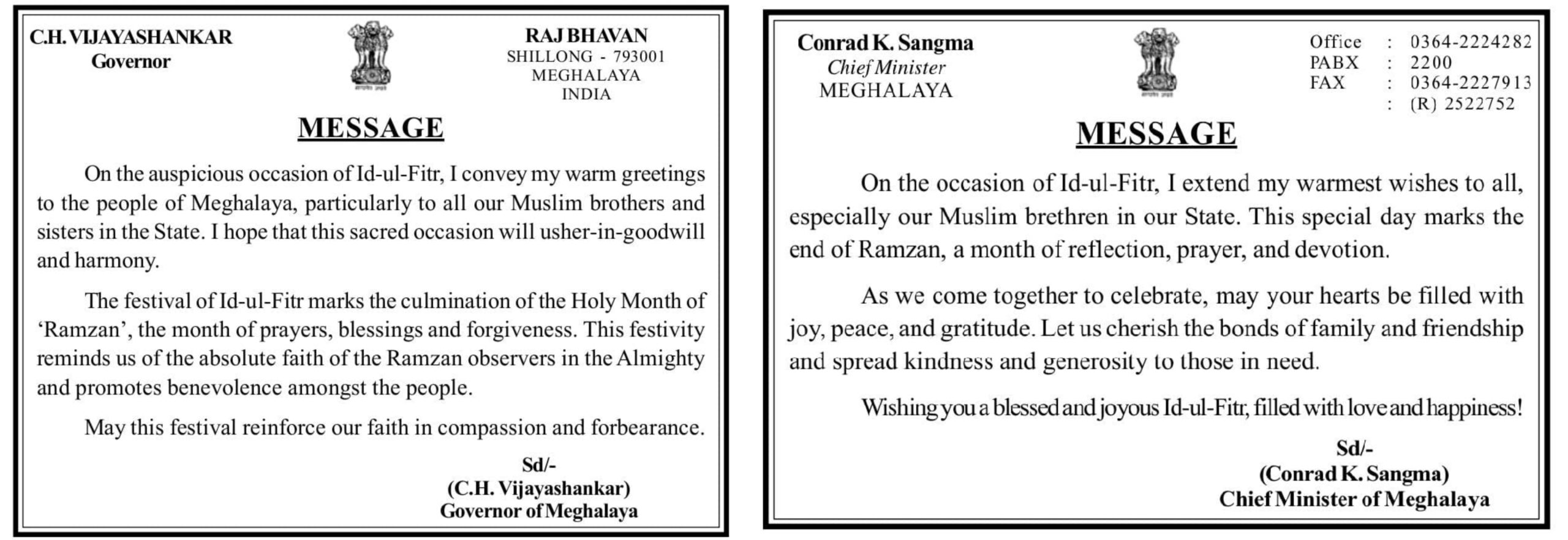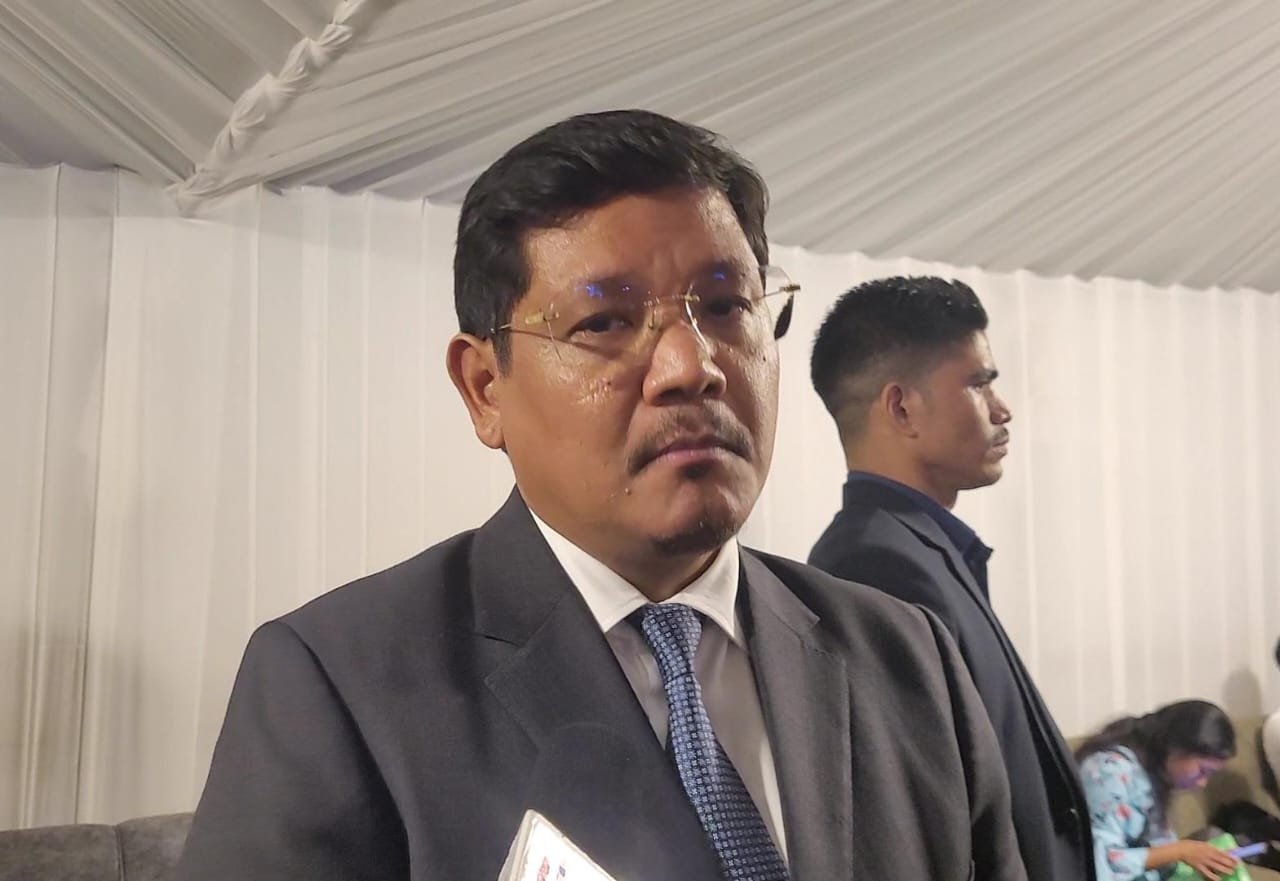Chief Minister Conrad K Sangma on Tuesday said the State Anthem was based on the official language (English) and the two associate official languages (Khasi and Garo) of Meghalaya.
Speaking to reporters, Sangma said, “We have based our decision on provisions that are there in the Acts, laws, or rules…We have gone purely on the basis of that and we have given the languages (in the anthem) on the basis of the official language and associate official language.”
After the release of the state anthem, political parties and NGOs have expressed concern over the non-inclusion of Jaintia dialect in the recently released State Anthem.
“If we are deviating from that then we don’t have any reasons to give for others, who may demand tomorrow. Tomorrow we have Bhoi saying that we want one word of Bhoi should be there or one word from different tribes that are there they will say please give also – if you are going to justify saying that we can’t they will say you have given to this language or that language and hence justification becomes very difficult for government so government cannot arbitrarily do things. We have to do things based on certain provisions that are there in different rules or acts that are in the system and that is the reason why on this particular issue we have done purely based on the provisions that are there,” he said.
Also addressing a news conference to clear the confusion over the issue, Arts and Culture Minister Paul Lyngdoh said the state Cabinet is guided by the existing rules, laws and acts that are in place and the official State Anthem of Meghalaya has to be based on certain acts and rules adopted by the State.
He informed that the Meghalaya State Language Act 2005 was passed by the Meghalaya Legislative Assembly and it received the assent of the Governor of Meghalaya on May 1, 2005. It was published in the Gazette of Meghalaya on May 4, 2005
Lyngdoh said the Act clearly stated that the English language shall continue to be the official language of the state of Meghalaya and that the Khasi and Garo languages maybe used as the associate official language for all purposes in the districts, sub divisions and block level offices of the state government located in the districts of the Khasi Jaintia and Garo Hills regions.
“This (Act) is the basis on which the State Anthem has been conceived and composed. It is not somebody wish or ill will towards any community but as what was stated by the Shillong MP stating that why Jaintia language was not included in fact this language Bill was introduced in the Assembly by the Congress led government under the leadership of DD Lapang as chief minister in 2005 when the Congress was in power and the MP at that point was also from the Congress party,” he said.
To a question, Lyngdoh said, “As long as we have an official language act which is in place and in force unless there is amendment to that particular act I don’t think anybody has the liberty to add, subtract or bring forth any new version to the anthem.”
Stating that the State Anthem is about unifying Meghalaya, Lyngdoh said, “As far as if you go through the lyrical content of the song, it reflects a call for unity and we have always believed that the Khasi, Jaintia is one cohesive community, we have in fact the whole idea of doctrine the anthem is also to push forward inclusion of the Khasi and Garo languages in the Eighth Schedule to the Constitution of India.”
“Are you saying that in 2005 there were no members from Jaintia Hills in the cabinet, are you saying that in 2008 (when the rules were framed) there were no MLAs from Jaintia Hills? Why were these points not raised in 2005 and 2008 and now that the government had simply based an anthem on an act adopted by assembly and assented by the governor to become an Act, what more can you expect of the government to do. The act is very clear cut and unambiguous,” he added.


